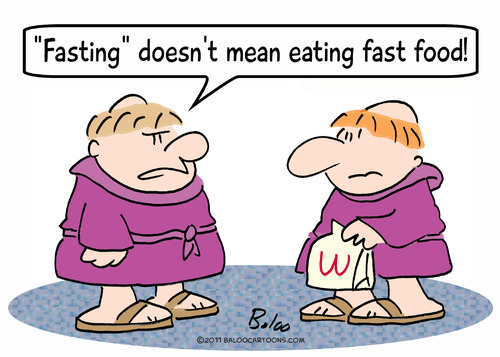Bonjour / Hello [nickname_else_first_name],
Shabbat Shuva
Shabbat Shuvah or Shabbat T'shuvah ("Sabbath [of] Return" שבת שובה or "Sabbath [of] Repentance" שבת תשובה) refers to the Shabbat that occurs during the Ten Days of Repentance, but is between (i.e. not including) the two consecutive Days of Rosh Hashanah, and the Day of Yom Kippur. The name Shabbat Shuvah comes from the first word of the Haftarah that is read on that day; the main haftarah consists of Hosea 14:2–10 and this is all that is read in Yemenite communities; other communities add Joel 2:11–27 and/or Micah 7:18–20, and literally means "Return!" It is alternately known as Shabbat T'shuvah owing to its being one of the Aseret Y'may T'shuvah (Ten Days of Repentance).
-wikipedia
Table of contents
1) Perashat Hashavoua - Rabbi Eli Mansour
2) Halakhat Hashavoua (Halakhot related to day to day life)
Laws of YOM KIPPUR - Hazzan David Azerad
3) Holy Jokes!
1)PERASHAT HASHAVOUA
This Week's Parasha Insight with Rabbi Eli Mansour
Parashat Vayelech: Transforming the Curse Into a Blessing
Parashat Vayelech begins by informing us, "Moshe went and spoke all these words to all of Israel." The commentators address the question of where Moshe "went." Why did he have to "go" somewhere to speak to Beneh Yisrael? Wasn’t he already speaking with them all this time?
Targum Yonatan Ben Uziel explains that Moshe went "Le’mashkan Bet Ulfana" – to the study hall. For some reason, specifically at this point, after completing his warnings to Beneh Yisrael about the consequences of breaching their covenant with G-d, Moshe went to the Bet Midrash to learn. Why?
Rav Shlomo Kluger (1785-1869) offers an answer by noting the Midrash’s teaching that G-d began the Torah with the second letter of the alphabet, "Bet" ("Beresheet Bara…"), and not with the first letter, "Alef," because the letter "Alef" represents the word "Arur" ("curse"). Rather than open the Torah with the letter that begins the word "Arur," G-d chose instead the letter "Bet" – the first letter of the word "Baruch" ("blessed"). The Midrash continues by relating that the letter "Alef" protested its having been passed over in favor of "Bet." In response, G-d assured this letter that when He would give Beneh Yisrael the Torah, He would begin with the letter "Alef." And thus the text of the Ten Commandments pronounced at Mount Sinai begins with the word "Anochi," the first letter of which is "Alef."
The obvious question arises as to why the letter "Alef" could open the text of the Ten Commandments, but not the text of the Humash. Why did G-d not want to begin the Torah with a letter associated with "Arur," but He was prepared to begin the Ten Commandments with this letter?
Rav Kluger explained that Torah has the ability to transform curse into blessing. Therefore, before G-d gave us the Torah, He did want to give the letter "Alef" a position of prominence, but at the time of Matan Torah, when pronoucning the Ten Commandments, He specifically began with the letter "Alef," which is associated with curse, to demonstrate that through Torah, we have the power to transform "Arur" into "Baruch."
Rav Kluger adds that this is why we refer to the study hall as a "Bet Midrash." It is where we bring "Beracha" – which begins with the letter "Bet" – through Torah learning, which has the effect of transforming curse into blessing.
For this reason, according to Targum Yonatan, Moshe went to the study hall at this point. After describing the dreadful curses which would befall the people, Heaven forbid, if they abandon G-d’s laws, he went to learn and teach Torah – to demonstrate how the curses can be transformed into blessings. Targum Yonatan refers to the study hall as "Bet Ulfana" – alluding to the letter "Bet" and the letter "Alef" (the first letter of "Ulfana"). He went there to show us how we can transform "Alef" to "Bet," and change every curse into a blessing.
As we now begin the new year, let us recommit ourselves to the intensive study of Torah, thereby ensuring that if, Heaven forbid, any evil decrees had been issued, they would be transformed into wondrous blessings for us and all Am Yisrael.
2) HALAKHAT HASHAVOUA
Selected & translated by David Azerad, Hazzan Maghen Abraham
The Laws of the Ten Days of Repentance , according to the rulings of Rabbi Obadiah Yosef ZT”L
What should you focus on during the ten days of repentance?
During the ten days of repentance, One should examine his actions from the past year, and should continue to increase charity and good deeds, because during these the scales of justice are in God's hand, And although the entire year we can do Teshuvah, these days are the most appropriate time for Teshuvah to be accepted immediately.
What is special about the week between Rosh Hashanah and Yom Kippur?
The seven days between Rosh Hashanah and Kippur are equivalent to the seven days of last year's days of the week, where Hashem atones for all negative deeds we had done last year against that day. For example: on Sunday, one will aim to correct all negative deeds he had done during all the Sundays of the previous year, so as Monday for all the Mondays of the year ect… In addition, one should also be very careful on this Shabbat Shuva in all the Mitzvot of Shabbat.
Bevirkat Shabbat Shalom Umevorch
David Azerad
3) HOLY JoKeS!!
Selection of funny snippets, loosely related to this weeks parashah, to brighten your day














